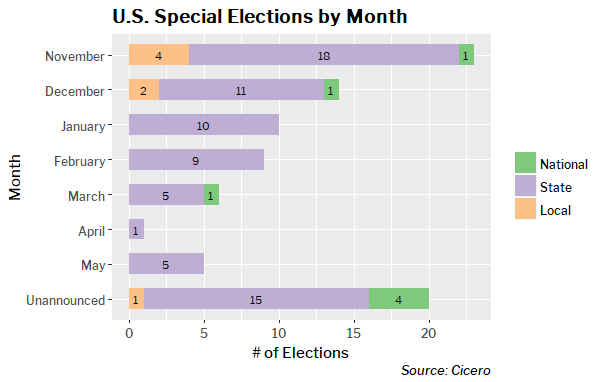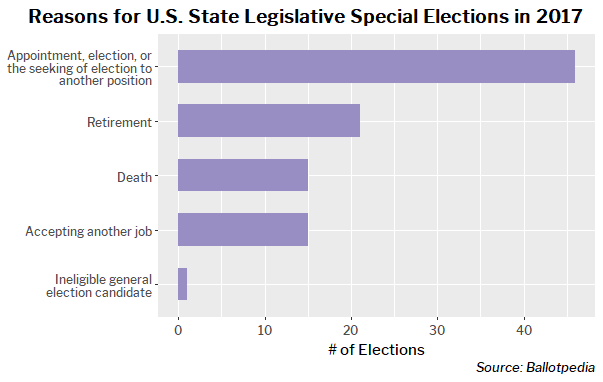On the Cicero team, we monitor special elections across nine countries for every legislature we cover. We’ve had an unusually high number of special elections this year. In 2017, we covered a whopping 103 special elections for city council, mayor, state house, state senate, U.S. Congress, or Senate.
Tracking special elections can be challenging, but our data entry team monitors key word searches and is alerted daily so our database can be updated as soon as special elections are announced and results posted. Most states have requirements that special elections are called within a certain time frame after a seat becomes vacant, which makes them easier to track. Often, U.S special elections are held on the same date as the general election: the Tuesday after the first Monday in November. The chart below shows the breakdown by chamber level since November through May:
Special elections can happen for a variety of reasons. Most often they’re called due to political shuffling. That happens when officials are appointed to another position or elected to a higher office, thus leaving their previous seat empty. The second most likely reason is due to retirement. And by retirement, sometimes that means “retired” due to a political scandal or corruption. The breakdown is below (data courtesy of Ballotpedia):
So far for 2018, 27 special elections have already been called. And there are currently 20 vacant seats, mostly in state legislatures, waiting to have special elections called. That’s only a portion of the 60 vacant state legislative seats in the U.S. as of December, but some will be filled by appointment. We track each special election and update our database as soon as results are announced. These results immediately go live in our API and are made available to our District Match and data licensing customers.


